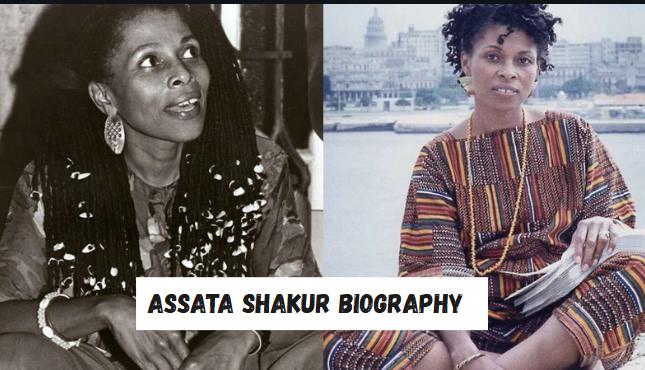
| Field | Details |
|---|---|
| Full Name | Assata Olugbala Shakur (born JoAnne Deborah Byron) |
| Date of Birth | July 16, 1947 |
| Place of Birth | Flushing, Queens, New York, USA |
| Date of Passing | September 25, 2025 |
| Age at Passing | 78 years |
| Nationality | American (lived in exile in Cuba) |
| Daughter | Kakuya Shakur |
| Known For | Political activism, Black Liberation Army, prison escape |
| Cause of Passing | Health complications related to old age |
| Residence (Later Life) | Havana, Cuba |
Who Was Assata Shakur?
Assata Shakur, born JoAnne Deborah Byron on July 16, 1947, in Flushing, Queens, New York, was a highly controversial figure in American history. She became known as a political activist, a member of the Black Liberation Army (BLA), and a former associate of the Black Panther Party.
Her life was marked by both activism and conflict with U.S. authorities. In 1977, she was convicted of the murder of New Jersey State Trooper Werner Foerster, linked to a 1973 shootout on the New Jersey Turnpike. Shakur, however, always maintained her innocence, insisting that her injuries from police gunfire at the time made it impossible for her to have fired the fatal shots.
In 1979, she managed a dramatic prison escape, aided by members of the BLA and the May 19 Communist Organization. By 1984, she had been granted political asylum in Cuba, where she lived for the rest of her life. Despite repeated U.S. government efforts to extradite her, Cuba refused. In 2013, she became the first woman ever placed on the FBI’s Most Wanted Terrorists list, a designation that carried a $2 million reward for her capture.
Family Life: Daughter and Personal Side
Beyond her political image, Shakur was also a mother. She had a daughter named Kakuya Shakur, who was raised in Cuba. Shakur often spoke of the importance of family, resilience, and justice, which remained central themes in her life.
Cause of Passing
On September 25, 2025, Assata Shakur passed away in Havana, Cuba, at the age of 78. Reports from the Cuban Foreign Ministry stated that her passing was linked to health complications and advanced age.
Education and Early Years
-
Raised in New York City and Wilmington, North Carolina, she had a challenging childhood, including time spent with her aunt, who later became one of her lawyers.
-
She studied at the Borough of Manhattan Community College and City College of New York, where her involvement in activism grew.
-
During these years, she adopted the name Assata Olugbala Shakur, meaning “she who struggles” in West African tradition.
Legacy
Assata Shakur’s life continues to be remembered as both inspiring and controversial. To her supporters, she symbolized resistance against systemic injustice and racial oppression. To her critics, she represented militancy and violence during one of America’s most turbulent eras.
Even after her passing, her story sparks debate, reflecting the deep divides of the time she lived in. Her writings, activism, and the mystery around her years in exile ensure that her name remains part of discussions on race, justice, and political freedom.
FAQs
Q: Who was Assata Shakur?
A: Born JoAnne Deborah Byron, she was a Black activist involved with the Black Panther Party and later the Black Liberation Army. She was convicted in 1977 in connection with a 1973 New Jersey Turnpike shooting and later escaped prison and lived in exile in Cuba.
Q: Did Assata Shakur have a daughter?
A: Yes — her daughter is Kakuya Shakur, who later lived with her mother in Cuba.
Q: How did Assata Shakur pass away?
A: Cuba’s Ministry of Foreign Affairs reported that she passed away in Havana on September 25, 2025, from health conditions and advanced age.
Q: Was she ever captured after her 1979 escape?
A: No. After escaping from prison in 1979 and resurfacing in Cuba in the 1980s, she remained in exile and was never extradited to the United States
Q: Why is she controversial?
A: Her supporters view her as a victim of political repression who fought systemic racism; critics view her as a convicted killer who avoided justice. The case intersects questions about state violence, criminal justice, and international asylum policy.
Conclusion
Assata Shakur’s life is a study in contradiction: a pioneering activist to some, a convicted criminal to others. Her story — from the streets of New York and the courtrooms of New Jersey to decades of exile in Havana — kept alive debates about race, policing, and the limits of political dissent. Her passing on September 25, 2025, marks the end of an era for a figure who inspired fierce loyalty and equally fierce condemnation. As historians and activists sift through evidence, testimony and memoirs, her life will continue to be contested ground for how the United States remembers its struggles over justice and equality





